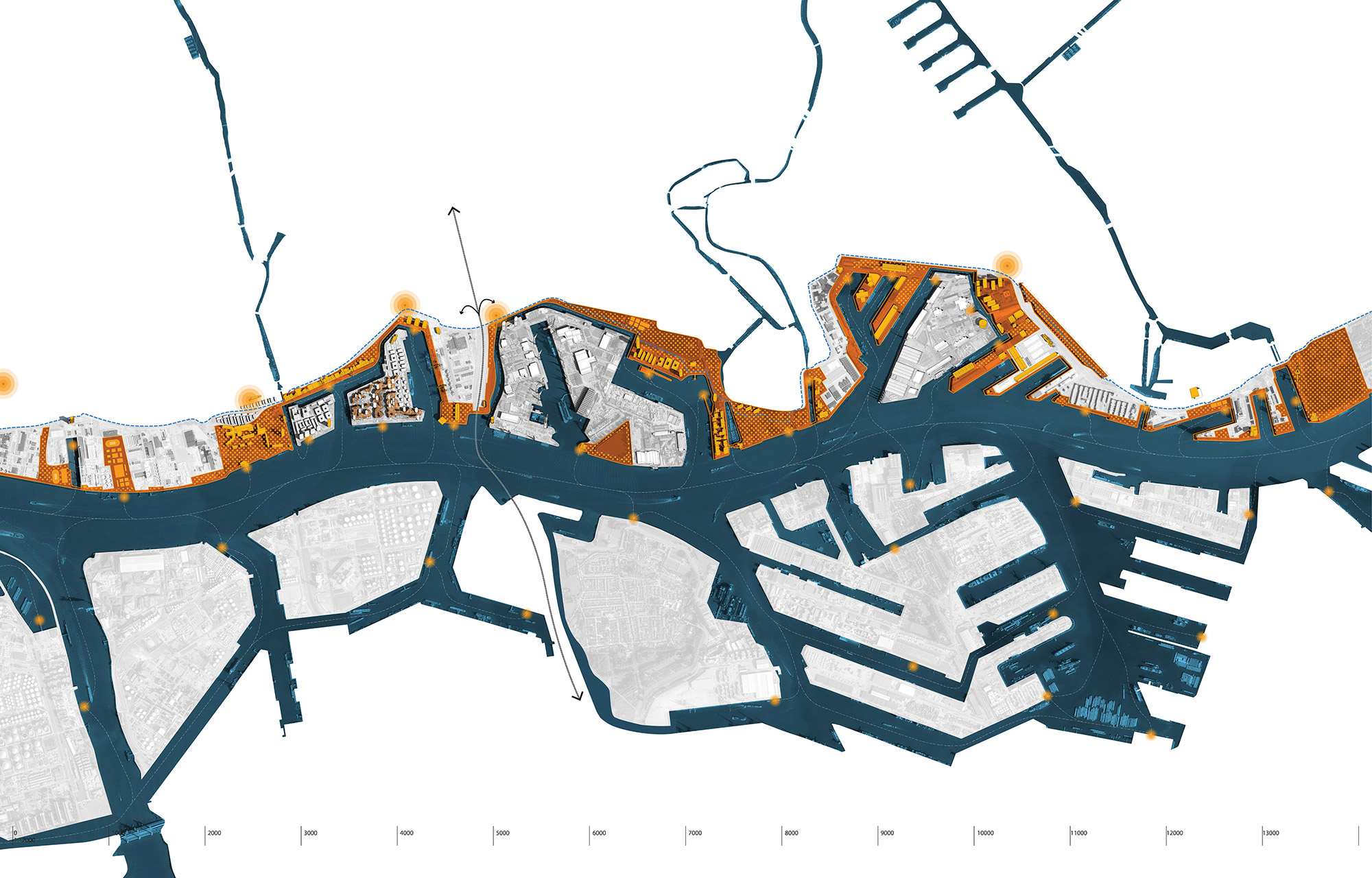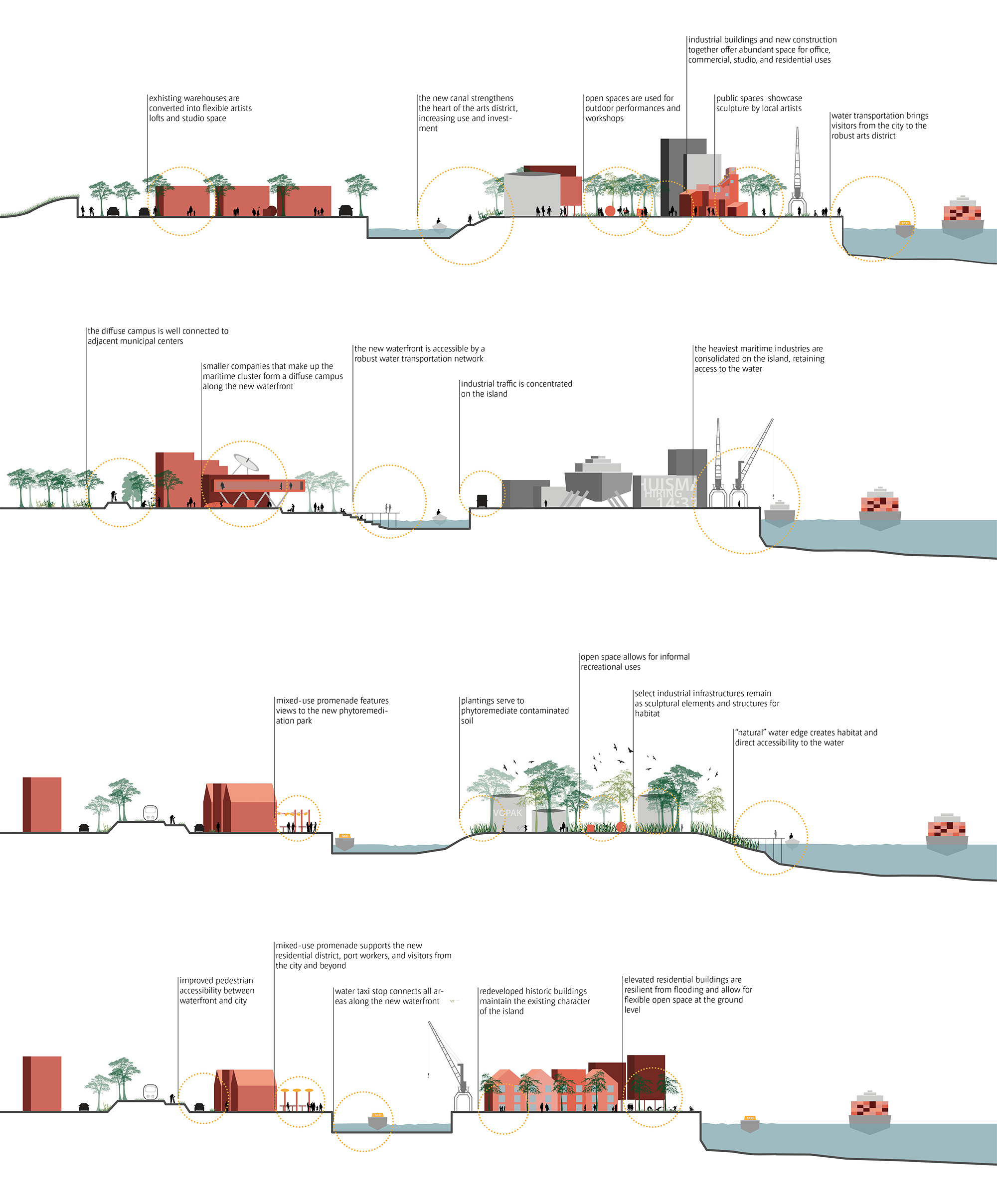Archipelago of Knowledge
Rotterdam, Netherlands
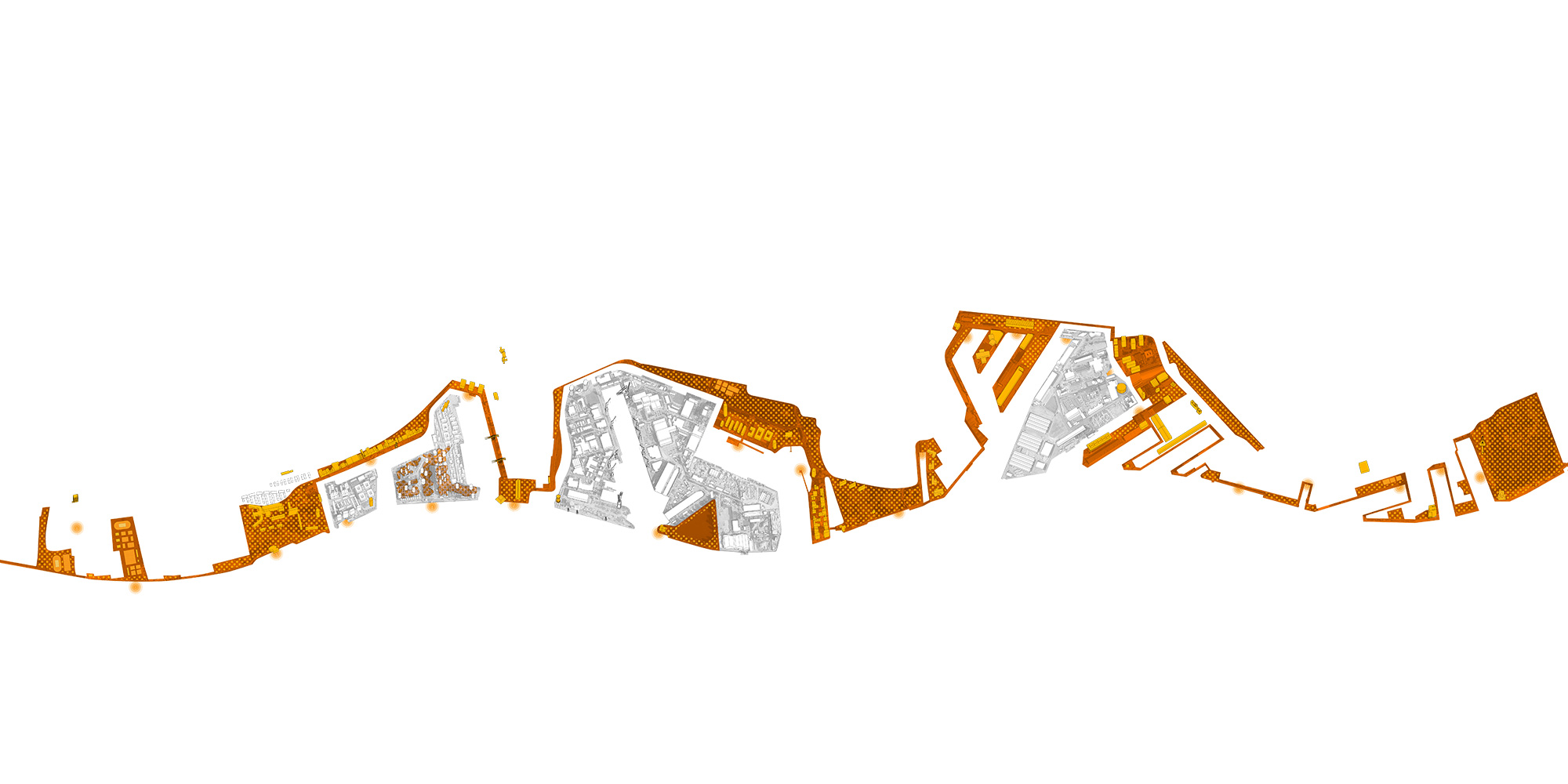
The Archipelago of Knowledge is a new spatial strategy for the city of Rotterdam, Netherlands, that reconsiders the relationship between port and city. Through the fragmentation of areas within the port, a series of islands are created, subsequently enabling the formation of a continuous, 100% accessible waterfront. Urban and ecological quality embedded in the direct relationship between city and water is re-established and enhanced, benefitting both citizens and the maritime cluster.
The new linear waterfront finally brings water back to the city – a city that often lacks a direct relationship with its largest water body, the Maas River, despite its close proximity and historical and cultural significance. The new system goes beyond administrative boundaries and fragmentation, unifying ongoing efforts of port revitalization and creating one coherent urban vision. The strategy itself, before its implementation, can be seen as a tool to bring together a diverse group of actors; from the city, the maritime cluster, the port, and local communities. Additionally, the waterfront can become a shared space for negotiation where the interests and needs of various stakeholders are discussed in order to find points of intersection and mutual interest.
The new islands are spatially defined areas where economic and planning scenarios unfold through time. Although their shape is fixed, their program, be it maritime, commercial, residential or recreational, can freely occupy the space according to future economic trends, needs, and decisions, ensuring a new beneficial relationship between port and city.
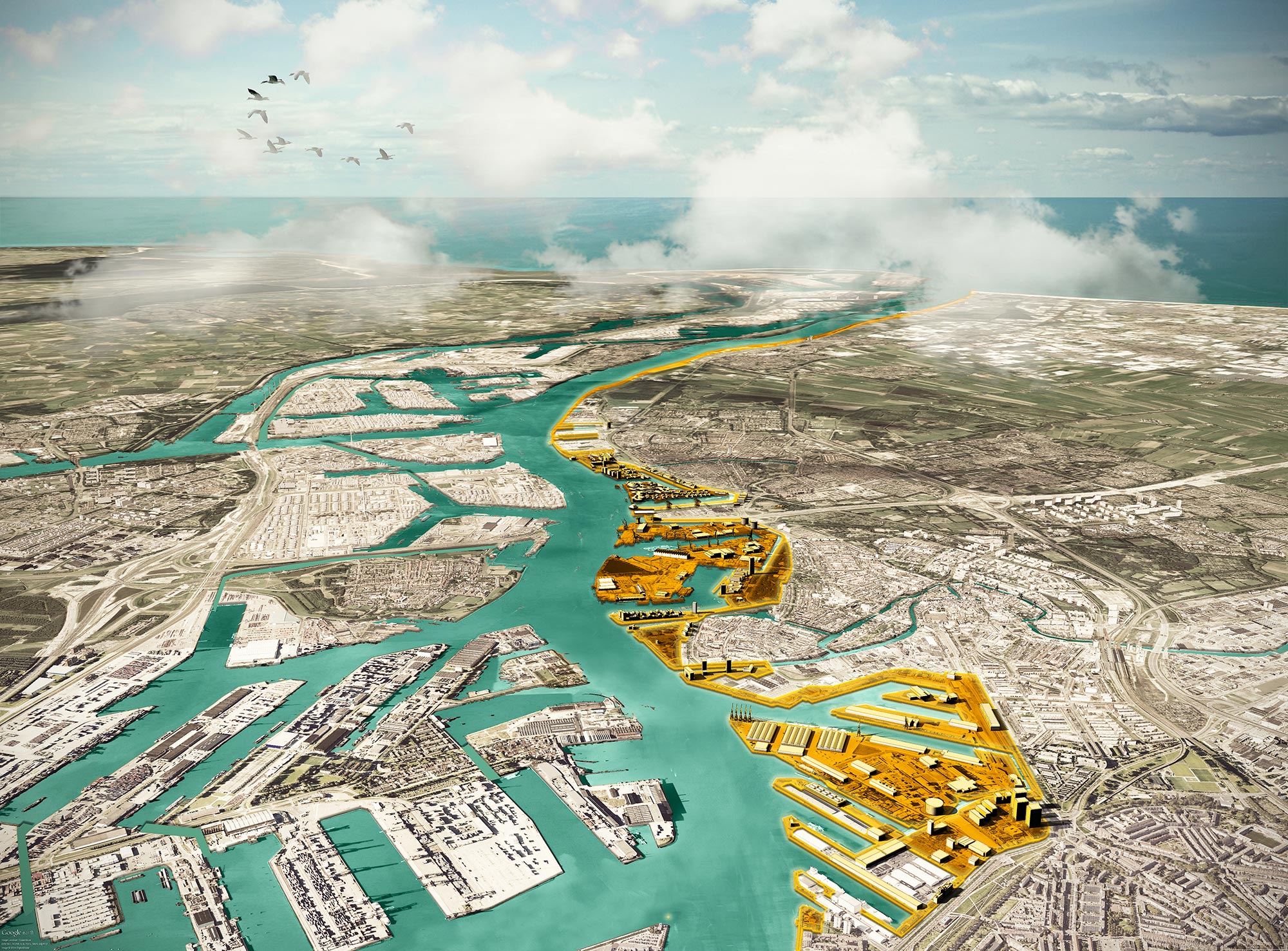
The port areas are fragmented into islands, resulting in the formation of a continuous, 100% accessible, waterfront
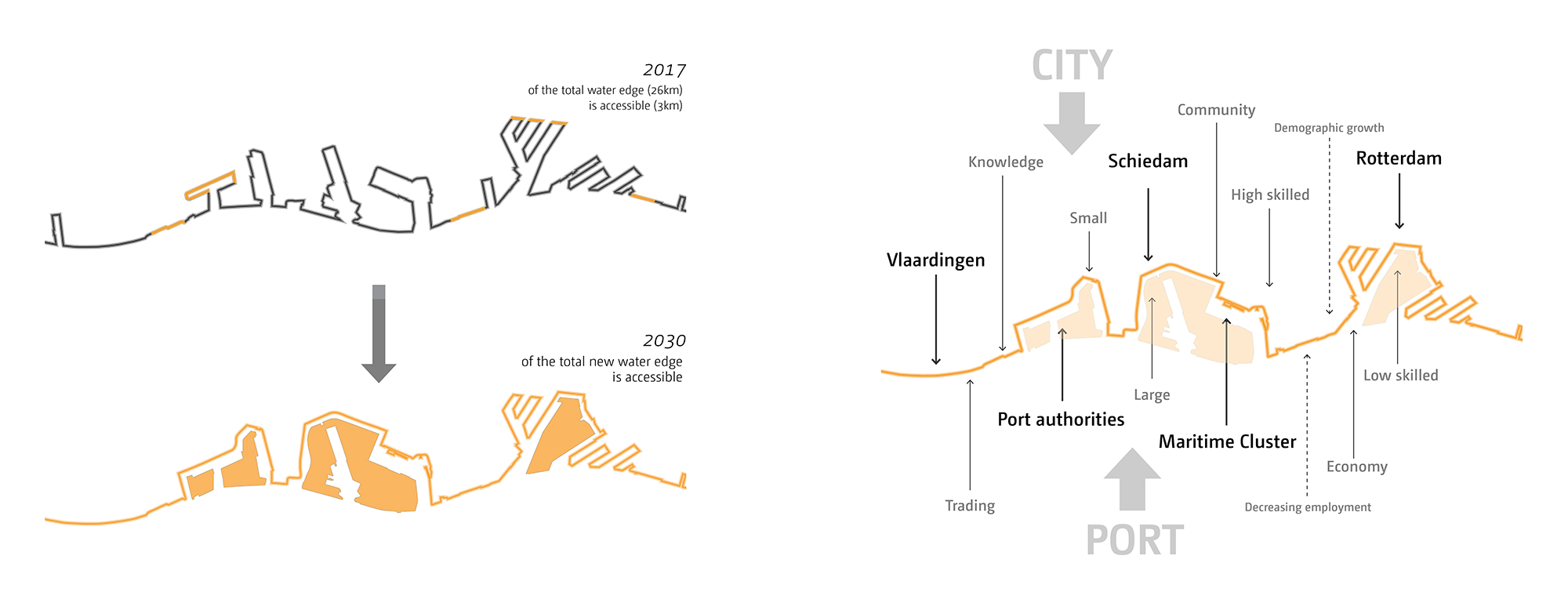
The waterfront is a system that goes beyond administrative borders and fragmentation but rather unifies the ongoing efforts of port revitalization into one, coherent urban vision
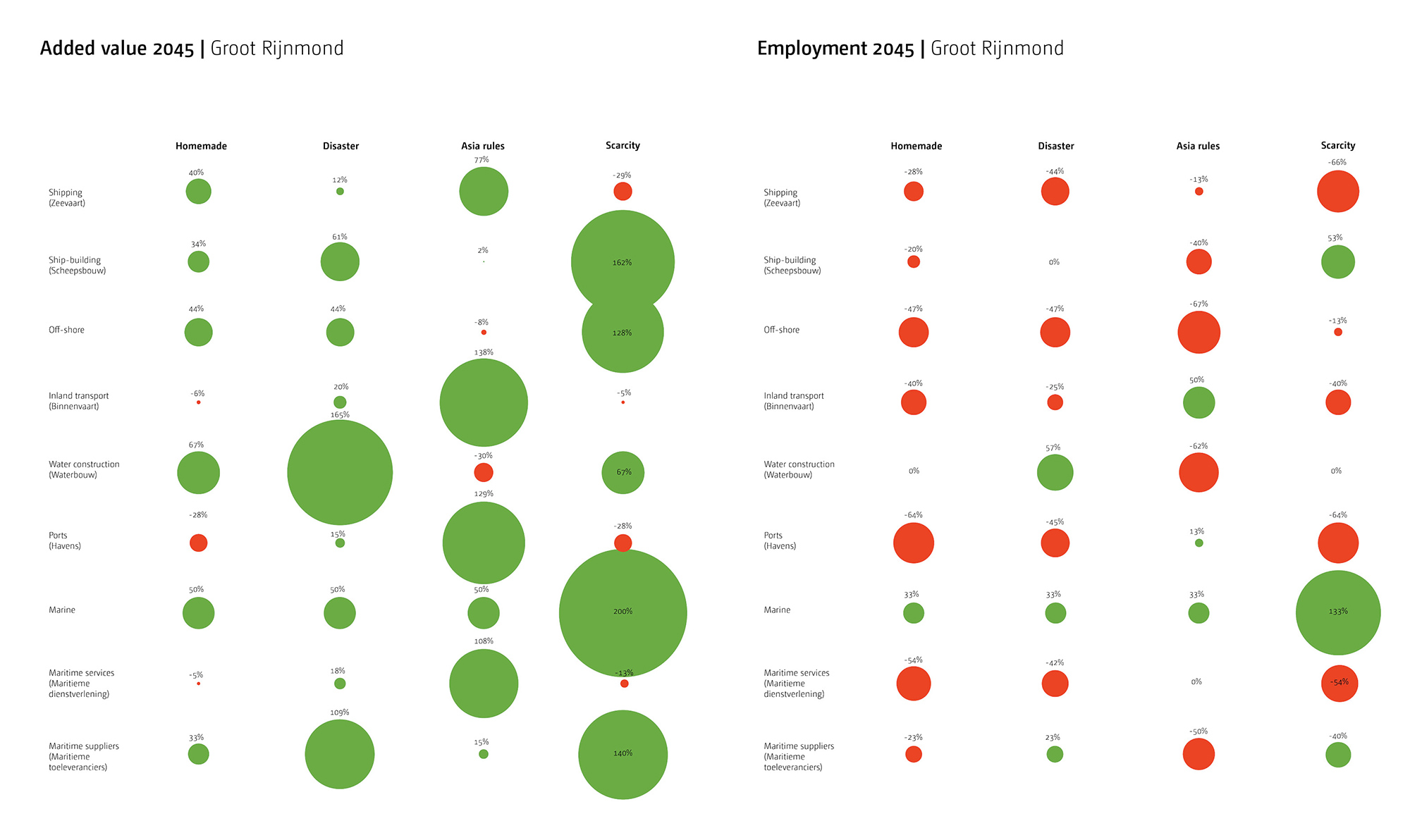
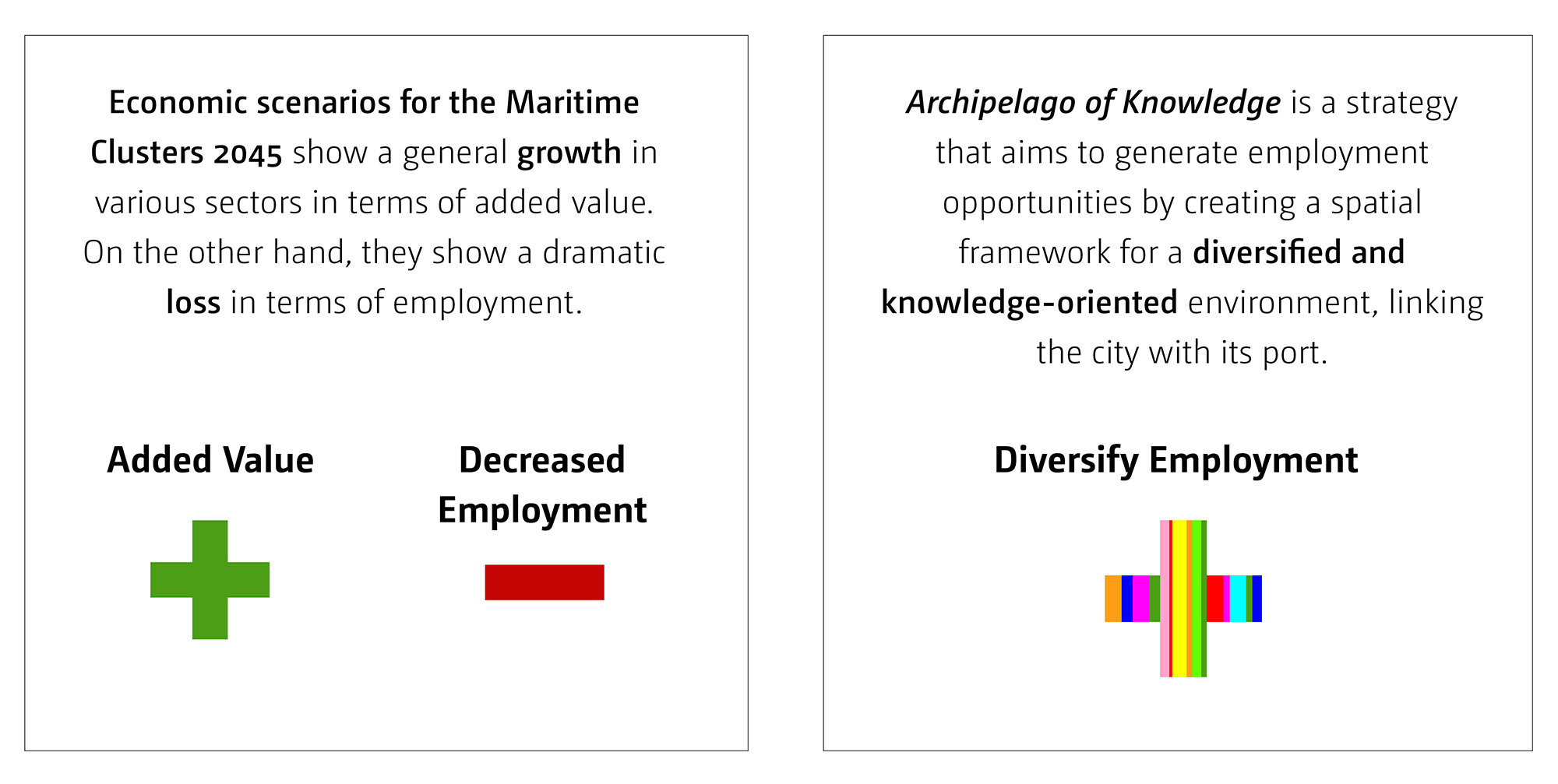
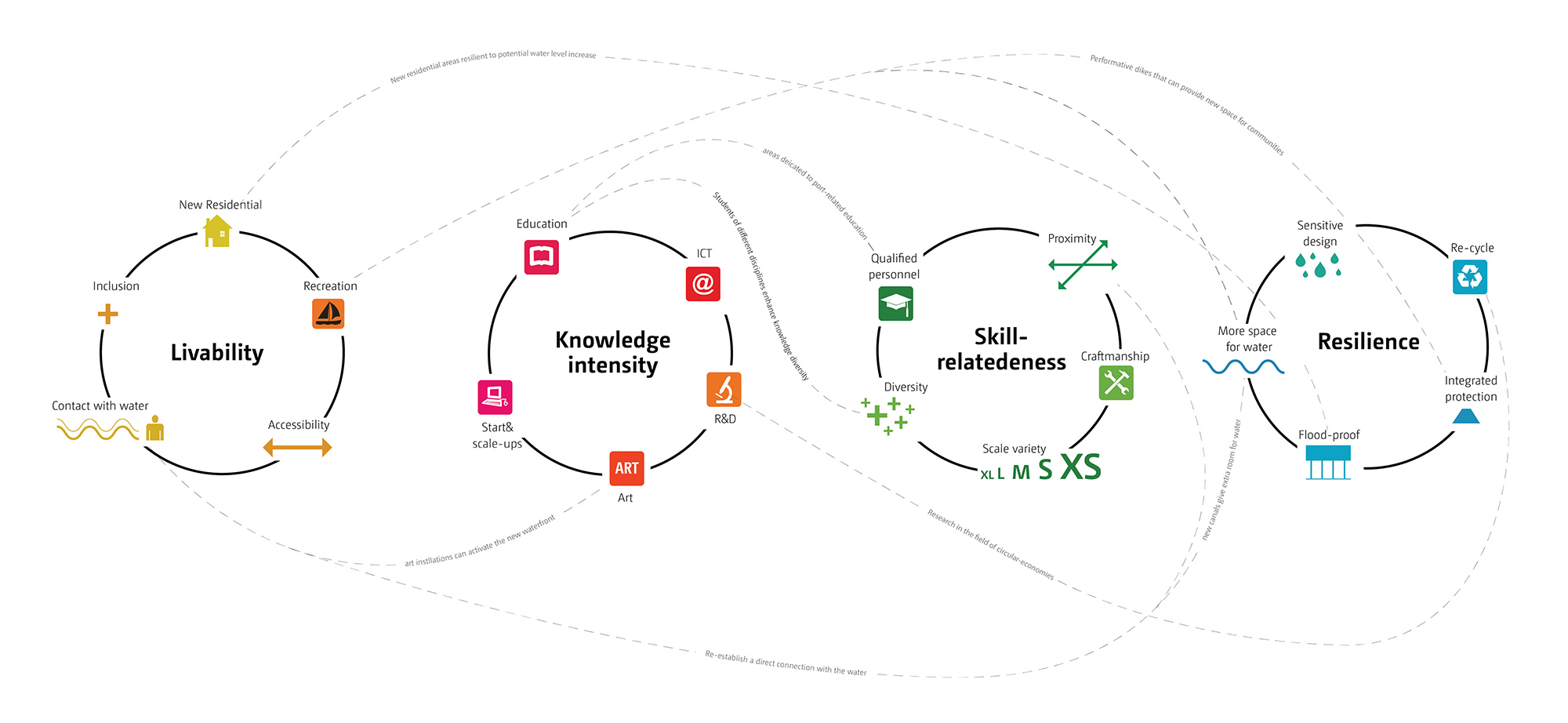
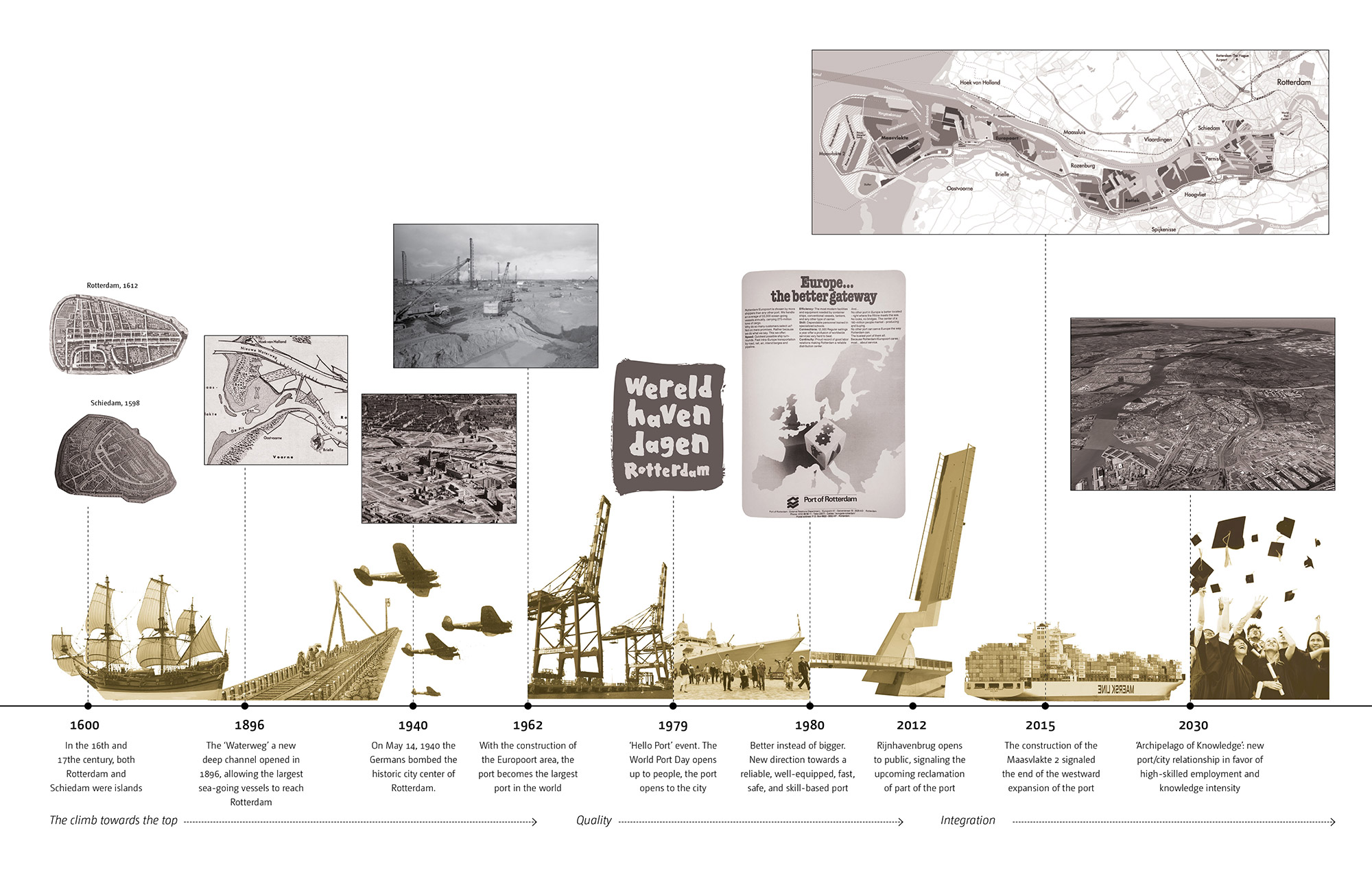
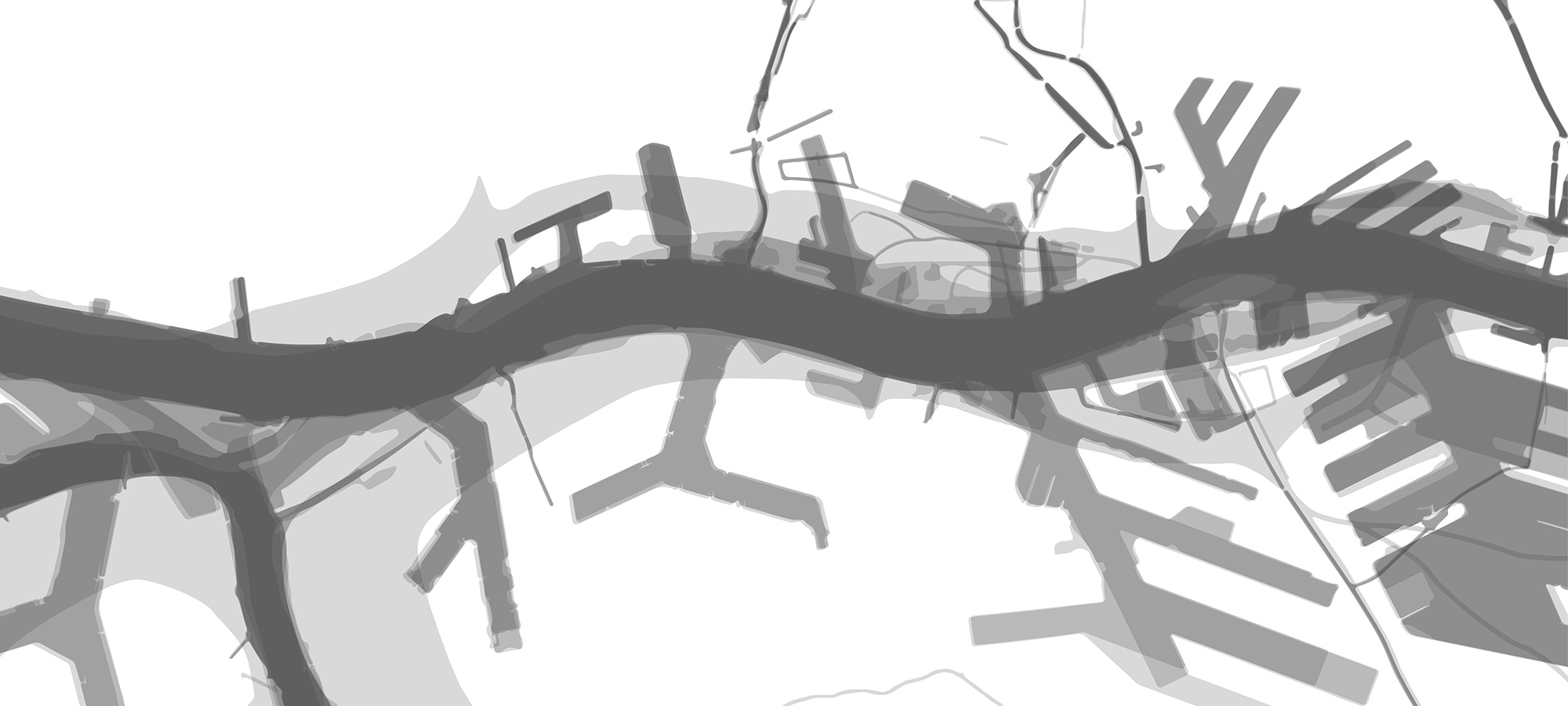
Port expansion has always implied dramatic transformations of the river landscape. The port has expanded and transformed through time, occupying more and more surface. The time has come, now, with changing conditions of the port economy, to re-orient land transformations to the advantage of the city and its people.
